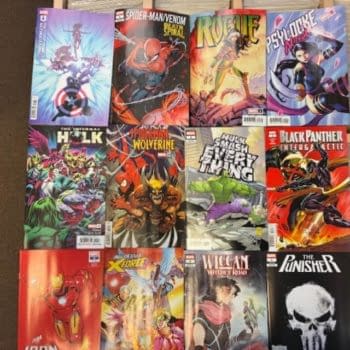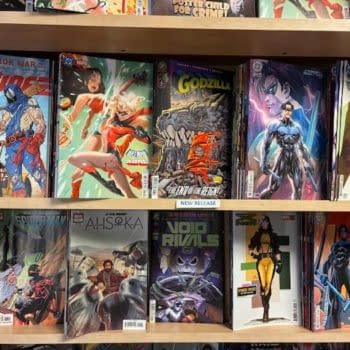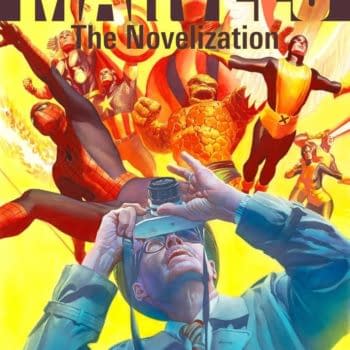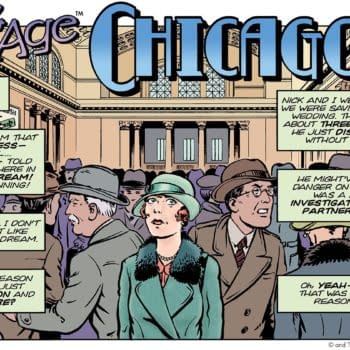Posted in: Comics | Tagged: comic store in your future, Comics
Comic Store In Your Future – Will Comic Publishers End Comic Readers?
Readership is a driving force in the comic business; however, publishers seem to neglect them more and more over the years.
Readership is a driving force in the comic business; however, publishers seem to neglect them more and more over the years. Before Rodman Comics opened, I read various titles. The writing and art in comics made reading them enjoyable for me. Over the years of selling comics, publishers have shifted their business strategy. I wrote a previous article about whether I sell art or books. Over a decade ago, people mainly came in to pick up a comic to read; as time passed, the publishers shifted more and more from one cover per comic to different covers per comic. More covers of the same issue lead some people to pick up multiple copies. Uncanny X-Force, written by Rick Remender, was launched in 2010; it was a hit at the store. People enjoyed reading it. There was a lot more people reading comics in store over a decade ago.
What are some of the things that went wrong over the years?
DC's New 52 wiped away years of continuity. The New 52 relaunch did bring new people into the store, though many older collectors left because many of the characters they enjoyed simply no longer existed at the time and would not be used again for years. Comic book limbo is a fate worse than a comic book death for a character. Wally West, who had his own Flash comic for years, and other characters who people enjoyed and read suddenly never existed. Over time, sales dropped, and DC brought back their forgotten characters, and now the New 52 history has been largely forgotten.
One would think the various comic movies would be a big boon for comic books. They have not been; at times, the film has had the opposite effect, such as when Marvel for years tried making the Inhumans property replace the X-Men property in comics due to Fox having the X-Men movie rights. Much money, time, and talent were used to push the various Inhumans titles, only leading to canceled titles. The Fantastic Four went unpublished due to Fox having the Fantastic Four rights.
The Harry Potter movies would increase interest in the books on which Harry Potter was based, while comic book movies were lucky to have the slightest positive effect on the actual comics they were based on.
The House of X and Powers of X limited series was a smash hit. People were once again excited about Marvel Mutants. What does Marvel do? Floods the market with mutant titles. There are so many titles that the average reader cannot keep up with them all, leading to most of the new readers leaving.
Batman is a very popular character. What does DC do? DC takes a page from Marvel and floods the market with Batman titles. On September 12th, three new Batman-related titles came out. Two of them being the first issues.

Brian Bendis was very popular over at Marvel. While Bendis was with Marvel for years, people wondered what Bendis could do with DC's Batman. Bendis finally left Marvel and joined DC. Bendis finally gets to write Batman. DC snuffs out that excitement by having Bendis's first Batman story be a Walmart exclusive for their Giant-Sized DC comics line that is no longer being published.
Relaunches are a pain when ordering. The publishers keep having them to have a quick increase in sales. At times, new people check out a first issue; other times, the people picking up each issue use it as a jumping-off point. So many relaunches are confusing to readership. Some people are surprised at how quickly the series they were reading is ended and renumbered.
Getting people excited about reading a series makes them want to get the next issue, to keep reading and enjoying a comic series. Over the years, publishers have done shortcuts to boost sales, a relaunch, multiple covers, gimmick covers, and more. These shortcuts are much more accessible than getting a creative team that will get people reading comics, though doing so, the comic industry gets lazy and loses long-term customers. The publishers have managed to drive away readership and seem perfectly fine until none are left.












